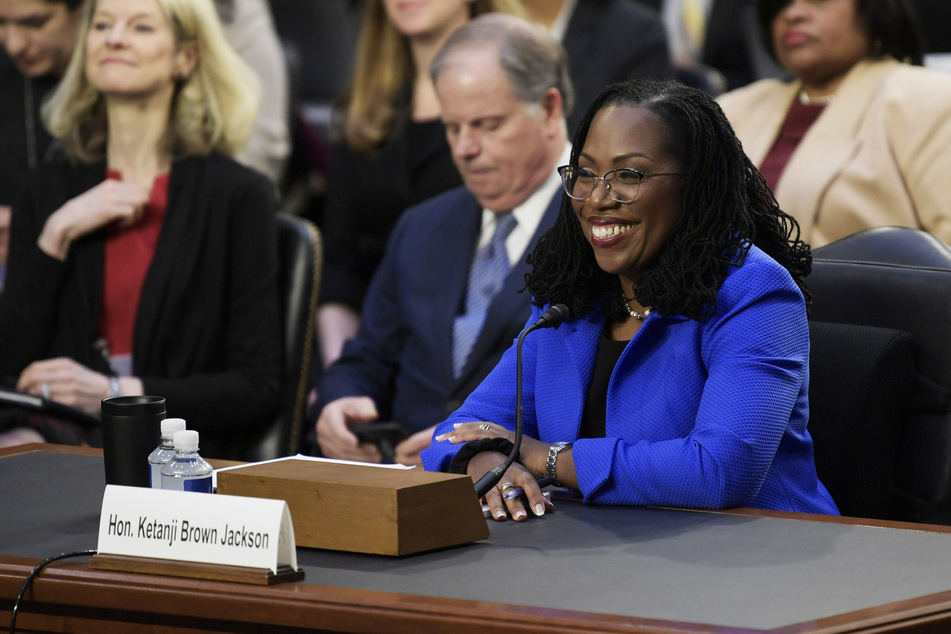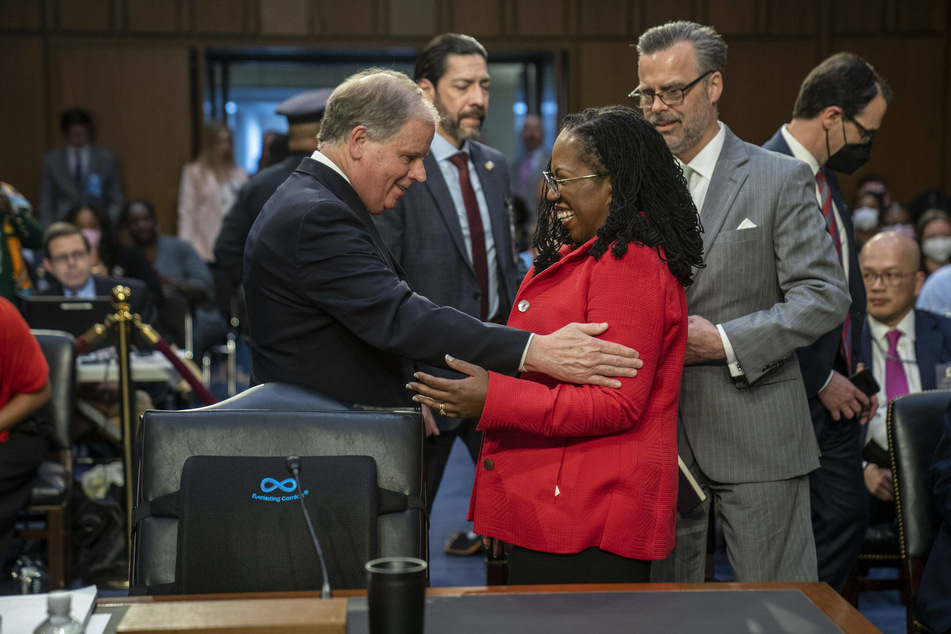Ketanji Brown Jackson: What's next for Supreme Court nominee after hearings?
Washington DC - Supreme Court nominee Ketanji Brown Jackson remains on a straight path to the nation’s high court, but her nomination could face a few hurdles as it approaches the finish line.

Based on the tone of her confirmation hearings, Republicans on the Senate Judiciary Committee could resist releasing Jackson’s nomination to the full Senate.
The potential procedural hiccup could slow Jackson’s confirmation to the Supreme Court, but it’s unlikely to derail her from becoming the first Black woman and first Floridian on the nation’s high court 233 years after its founding.
Jackson’s confirmation hearings finished Thursday, and the Senate Judiciary Committee will resume its work Monday with the formal consideration of her nomination.
If a majority on the committee approves Jackson’s nomination, it’ll move onto the full Senate with the committee’s recommendation. But it’s possible that the committee – evenly divided between 11 Democrats and 11 Republicans – could deadlock.
"It is a fact of Senate life right now that it’s evenly divided," Senator Richard Blumenthal, a Connecticut Democrat on the committee, said Thursday.
"But that kind of evenly divided vote, if it happens, won’t reflect the merits because she’s demonstrated such powerful intellect and character," Blumenthal said.
Democrats hold out hope

Committees considering a presidential nominee have four options: they can report a nomination favorably, unfavorably, without a recommendation, or take no action.
Democrats will be seeking a favorable report, but it’ll require a Republican senator to either cross the aisle to vote in favor of the judge or abstain from voting.
An abstention by a Republican would result in an 11-10 favorable vote if all Democrats vote for her and all other Republicans vote against.
That seems unlikely to happen based on the content of the hearings.
GOP lawmakers grilled Jackson on her sentencing decisions in seven child pornography cases during her eight years as a federal trial court judge and on her work on Guantánamo Bay detainees’ cases as a federal public defender and private practice attorney in the 2000s.
If the committee splits on the judge, it’ll require Democrats to pass a discharge petition to release her nomination to the full Senate. It could be politically embarrassing for the judge and President Joe Biden, but it wouldn’t prevent her from being confirmed to the nation’s high court.
Senate leaders are aiming for a committee vote on Jackson by April 4 and a full Senate vote before April 11 when senators are scheduled to begin their spring break.
Democrats can confirm Jackson on their own through Vice president Kamala Harris’ tie-breaking vote, but Biden’s team and Senate Democrats have repeatedly expressed their desire for GOP support.
Former Senator Doug Jones, the Alabama Democrat the White House has tasked with shepherding Jackson’s nomination, told reporters Thursday that he was confident that the judge would be confirmed with bipartisan support.
"Look, we’re going to get some GOP support. ... I feel like we’re going to get some votes. How many? We’ll see. But she should get a bunch," Jones told reporters.
Few signs of Republican backing

Three Republican senators supported Jackson’s confirmation to the US Court of Appeals for the DC Circuit last year.
One of them, Senator Lindsey Graham of South Carolina, serves on the Judiciary Committee, but Graham’s contentious exchanges with Jackson during the hearings and other public comments indicate he’s unlikely to support her again.
The other two Republicans to back Jackson last year were moderate Senators Lisa Murkowski of Alaska and Susan Collins of Maine, both of whom have met one-on-one with Jackson.
Three Republicans did not participate in Jackson’s DC Circuit vote, including one from her home state of Florida, Senator Marco Rubio, who grew up just miles from the judge in Miami. But Rubio’s public statements suggest that he’s unlikely to back his fellow Miamian for the high court.
The other two Republicans who missed last year’s vote are retiring Senators Roy Blunt of Missouri and Ben Sasse of Nebraska, a member of the Judiciary Committee.
Blunt told reporters Wednesday that he would "certainly be pleased to vote for the first Black woman to go on the court, but what happens in the hearings will be and should be the most important element of that."
In addition to procedural hurdles, potential absences due to Covid-19 or other medical issues could also slow down the confirmation timeline.
Senator Bob Casey, a Democrat from Pennsylvania, tested positive for the virus this week and there’s no guarantee that another Democratic senator won’t have a similar positive test as the vote approaches, which could lead to unforeseen delays.
Cover photo: IMAGO / NurPhoto

